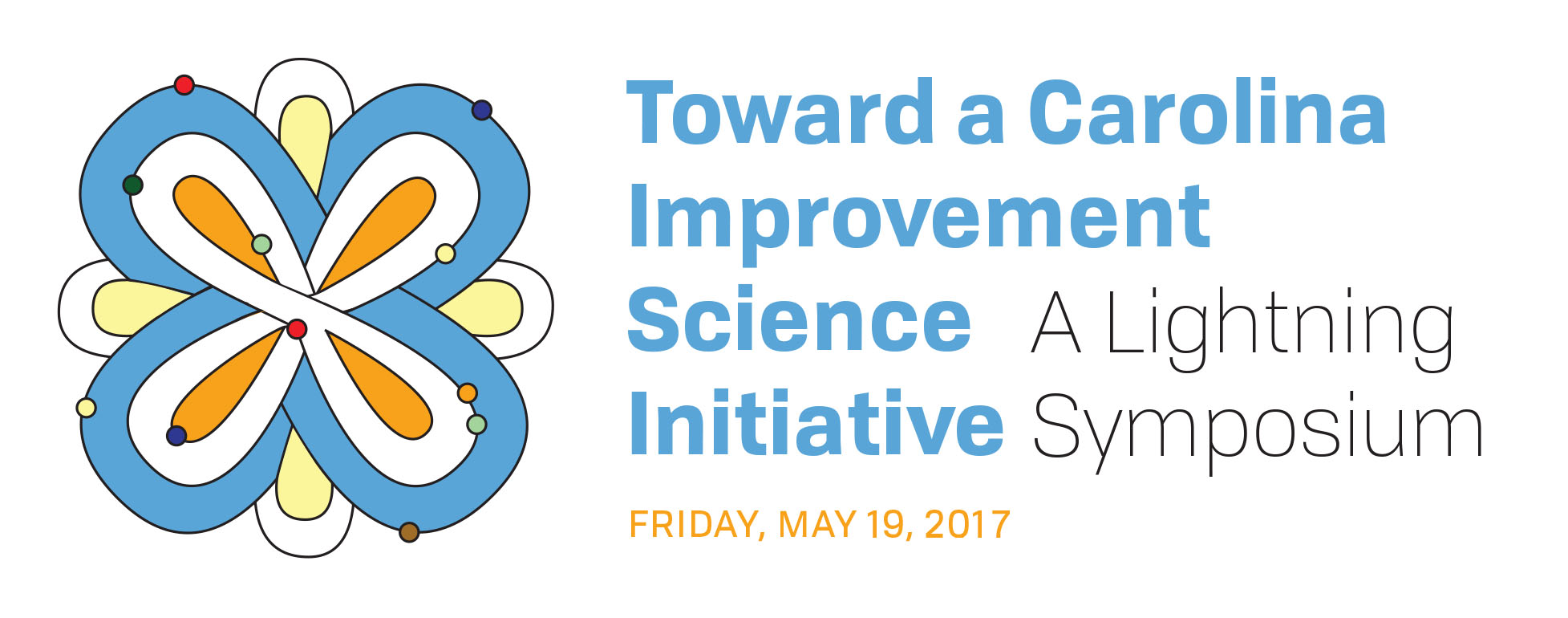Symposium Details
There is growing concern among researchers and government officials alike that knowing “what works” is important but not enough for enacting sustainable, system-level change. Failed attempts at replicating positive outcomes in new or expanded settings, be they schools, hospitals, clinics, community centers or corporations, underscore the need for a different relationship between research and practice, one that takes a systemic perspective on improvement.
To facilitate system-level change, improvement science and its close cousins – design experimentation, quality improvement, and implementation science – develop and refine methods for answering what works, for whom, and under what conditions? They do so by merging the power of research that has a strong basis for causal inference with systems thinking, design principles, innovation prototyping, and rapid-cycle testing to improve organizational decision-making and optimize outcomes.
Toward a Carolina Improvement Science Initiative: A Lightning Symposium brought together faculty, staff, and graduate students from across campus who are engaged in research on improvement at scale. This symposium’s aim was to identify expertise in what might be called a family of improvement approaches that may be organized into a strategic campus-wide effort.
Following the symposium, our hope is to provide a hub of activity with resources to facilitate cross-disciplinary teams at UNC-CH to develop education and training programs in improvement science, pursue external funding opportunities, design and test improvement tools and modalities, and conduct impactful research that has transformative potential for improvement at scale. As such, we sought submissions that address research, teaching, and development in healthcare, education, social work, business and beyond into how to foster improved results across a number of conditions and contexts.
Submissions were made on a wide array of improvement-related approaches and topics. The improvement work described in the submissions were directed towards a diverse set of grand challenges faced by residents across the state, including, for example, the achievement gap between North Carolina’s poor students and those who are better off, the shortage of living-wage jobs in the state’s rural communities, and disparities in health outcomes across the state.
SYMPOSIUM DETAILS
The program consisted primarily of Lightning Talk presentations selected through our open call for submissions and a peer-review process guided by a Steering Committee consisting of representatives from the seven UNC professional schools and the College of Arts and Sciences sponsoring the work.
Consistent with the “Lightning” nature of the symposium, each presentation was no longer than 5 minutes and will be uploaded prior to May 19. Poster sessions were used to feature some submissions.
For questions related to the program theme, contact your respective representative on the Exploratory Committee listed with their email addresses below, or Lora Cohen-Vogel at lora.cohen-vogel(at)unc.edu or Jill Hamm at jill.hamm(at)unc.edu.
Toward a Carolina Improvement Science Initiative Exploratory Committee:
- Alice Ammerman, Gillings School of Global Public Health – alice_ammerman(at)unc.edu
- Julie Byerley, School of Medicine – julie_byerley(at)med.unc.edu
- Lora Cohen-Vogel, School of Education – lora.cohen-vogel(at)unc.edu
- Carol Durham, School of Nursing – carol_durham(at)unc.edu
- Jennifer Elston Lafata, Eshelman School of Pharmacy – jel(at)email.unc.edu
- Jill Hamm, School of Education – Jill.Hamm(at)unc.edu
- Cheryl Jones, School of Nursing – cabjones(at)email.unc.edu
- Kirsten Kainz, School of Social Work – kirsten.kainz(at)unc.edu
- Jacqui McLaughlin, Eshelman School of Pharmacy – jacqui_mclaughlin(at)unc.edu
- Allison Metz, National Implementation Research Network – allison.metz(at)unc.edu
- Lisa de Saxe Zerden, School of Social Work – lzerden(at)email.unc.edu
- Byron Powell, Gillings School of Global Public Health – bjpowell(at)email.unc.edu
- Rohit Ramaswamy, Gillings School of Global Public Health – ramaswam(at)email.unc.edu
- Bradley Staats, Kenan-Flagler Business School – bstaats(at)unc.edu
- Tina Willis, School of Medicine – Tina.Willis(at)unchealth.unc.edu
